
Does a whole lesson on animals in Hebrew seem like a bunch of monkey business to you? Well, we’re not horsing around today! As any schoolchild knows, animal names are a basic component of any language. And in Hebrew, there are some particular reasons this is true. First, as a country that engages heavily in agriculture, Israel is full of domesticated animals (particularly in the country, as well as in kibbutzim and moshavim). Secondly, Israel’s natural fauna abounds, including some animals that are indigenous to Israel. And finally, the Bible itself mentions over 120 species of animals, so many of the Hebrew animal names go back thousands of years.
An additional reason to learn Hebrew words for animals is that Israelis are big pet lovers. Around a third of Israelis have some sort of pet, with dogs and cats taking the lead. Still, there is no shortage of other animals, like birds, reptiles, and rodents, to be found in Israeli homes.
Whatever the case may be, it’s always good to rest the brain from grammar and other serious linguistic endeavors once in a while and to just have fun!
Today’s lesson will cover the top 80 Hebrew animal names and words related to animals, including some key animal body parts and a few common expressions related to animals. Don’t chicken out now! You don’t have to learn all 80 at once. Just pick a handful at a time, and stay focused on those. The lion’s share of these words are easy enough to pronounce and remember, so let’s jump in and grab this bull by the horns!
 Table of Contents
Table of Contents
- Pets (חיות מחמד, khayot makhmad)
- Farm Animals (חיות משק, khayot meshek)
- Wild Animals (חיות בר, khayot bar)
- Marine Life (החיים הימיים, Ha-Khayim ha-yamiyim)
- Insects (חרקים, kharakim)
- Birds (ציפורים, tziporim), Reptiles (זוחלים, zokhalim) & Amphibians (דו-חיים, du-khayim)
- Animal Body Parts (חלקי גוף של בעלי חיים, khelkey guf shel ba’aley khayim)
- Animal-Related Idioms & Slang
- No need to go lone wolf with your Hebrew! Let HebrewPod101 get you to the head of the pack.
1. Pets (חיות מחמד, khayot makhmad)
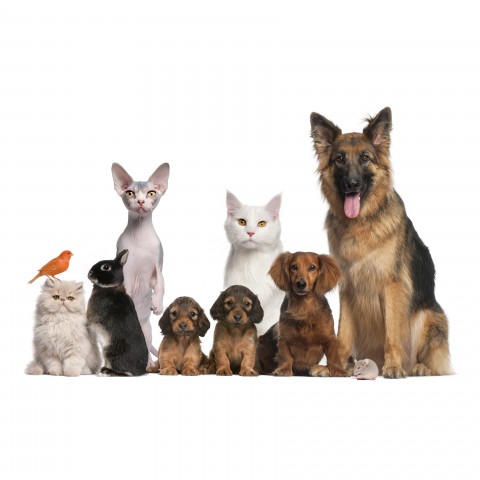
The most obvious place to start is with pets. After all, these are the animals most of us are likely to encounter on a daily basis. Israel is very much a pet-friendly society, with Tel Aviv even hosting a festival just for dogs! Israelis’ top choices for pets won’t strike you as much of a surprise, as they’re pretty much in line with Western pets.
Now, let’s have a look at the most common pets in Hebrew. Note that in many cases, these words are gendered, so you want to try to use the correct form—either masculine or feminine—depending on the gender of the animal.
1. כלב/ה
kelev/kalbah
“dog”
2. חתול/חתולה
khatul/khatulah
“cat”
3. דג
dag
“fish”
4. אוגר
oger
“hamster”
5. עכבר
‘akhbar
“mouse”
6. ציפור
tzipor
“bird”
* Note that this word is always feminine.
7. תוכי
tuki
“parrot”
8. יונה
yonah
“dove”
9. צב
tzav
“turtle”
10. נחש
nakhash
“snake”
2. Farm Animals (חיות משק, khayot meshek)
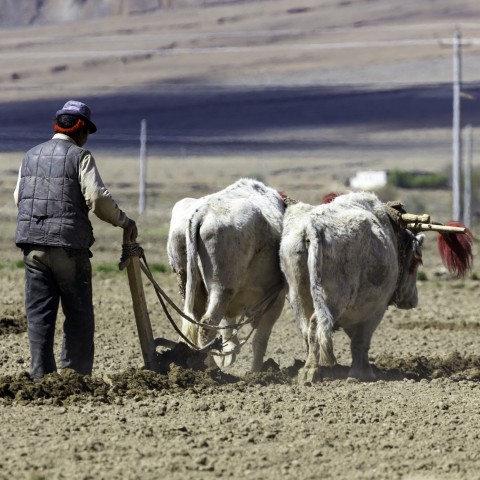
Are you interested in singing Israel’s equivalent of Old MacDonald (לדוד משה היתה חווה – Le-Dod Mosheh haytah khavah – “Uncle Moshe Had a Farm”)? Or are you considering spending some time in a kibbutz? In either case, it’s a good idea to familiarize yourself with the more common domesticated animals you’re likely to find in a farm setting.
Israel is a heavily agricultural country, so you can expect to see little farms anywhere outside of the big cities. Here are the top farm animals in Hebrew. Note that in some cases, the masculine and feminine words are completely different (like “cow” and “bull” in English).
11. פרה
parah
“cow”
12. שור
shor
“bull”/”ox”
* Note that the word for “livestock“ in Hebrew is בקר (bakar).
13. חזיר/חזירה
khazir/khazirah
“pig”
14. חמור/אתון
khamor/aton
“donkey”
15. תרנגול/תרנגולת
tarnegol/tarnegolet
“rooster”/”hen”
16. ברווז
barvaz
“duck”
17. סוס/סוסה
sus/susah
“horse”
18. תיש/עז
tayish/ ‘ez
“goat”
19. כבש/כבשה
keves/kivsah
“sheep”
* Note that the word for “flock(s)” of sheep or goats in Hebrew is צאן (tzon).
20. תרנגול הודו
tarnegol Hodu
“turkey” (literally: “Indian chicken” – There would seem to be some disagreement over the geographical origins of this bird!)
3. Wild Animals (חיות בר, khayot bar)
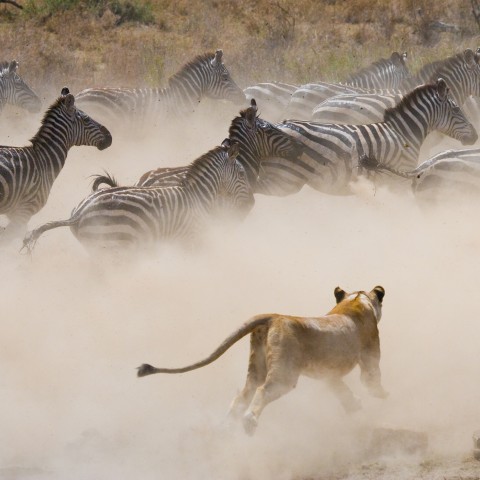
Now let’s have a look at some of the most popular wild animals. You can see some of these at Israel’s various nature reserves (such as Ein Gedi) or at the singular Jerusalem Biblical Zoo. Unfortunately, due to the density of its population, many species indigenous to Israel—such as mountain gazelles and ibexes—are less common a sight than in times past. Hopefully, conservation efforts will manage to preserve these species not only in zoos and safaris but also in the wild.
Here are the names of common wild animals in Hebrew:
21. נמר/ה
namer/nemerah
“tiger”
22. פיל/ה
pil/pilah
“elephant”
23. דוב/ה
dov/dubah
“bear”
24. שועל
Shu’al
“fox”
25. תן
tan
“jackal”
26. היפופוטם
hipopotam
“hippopotamus”
27. ג’ירפה
jirafah
“giraffe”
28. אריה/לביאה
aryeh/levi’ah
“lion”/”lioness”
29. צבי/איילה
tzvi/ayala
“gazelle”
30. יעל
ya’el
“ibex”
4. Marine Life (החיים הימיים, Ha-Khayim ha-yamiyim)
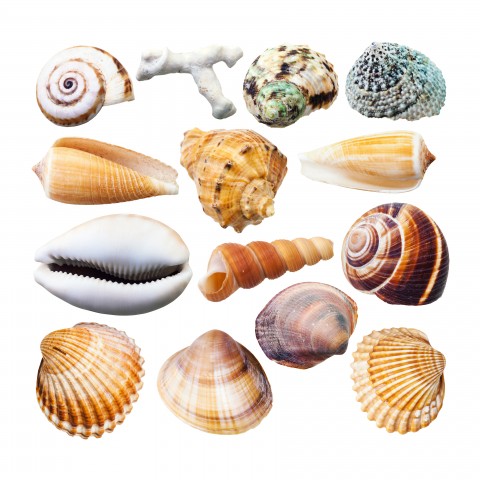
As you probably know, Israel enjoys access to two different coastlines—the Mediterranean Sea and the Gulf of Eilat (a.k.a. the Gulf of Aqaba)—as well as the Sea of Galilee and the Dead Sea, both of which are actually large lakes. Going to the beach is a huge part of Israeli culture, so it’s a good idea to brush up on some of the top words for marine animals. Let’s have a look!
31. כריש
karish
“shark”
32. לוויתן
livyatan
“whale”
* Note that this Hebrew word is the root of English’s “leviathan.“
33. דולפין
dolfin
“dolphin”
34. תמנון
tamnun
“octopus”
35. חסילון
khasilon
“shrimp”
36. סוסון ים
suson yam
“seahorse”
37. סרטן
sartan
“crab”
* Note that this word also means “cancer.“
38. אלמוג
almog
“coral”
39. מדוזה
meduzah
“jellyfish”
40. אצות
atzot
“algae”
5. Insects (חרקים, kharakim)
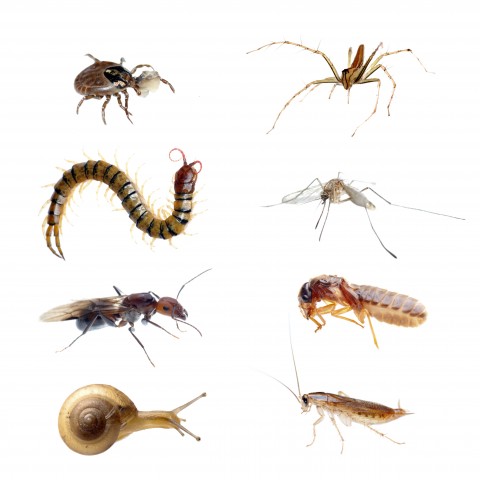
No examination of Hebrew animal words would be complete without a discussion of insects and other creepy-crawlies. Israel is no stranger to bugs, whether in terms of the locusts and lice mentioned in the Bible, the malarial mosquitoes that plagued modern settlers in the pre-state years, or the ticks that our dogs and cats bring home from the woods. Here are the top words you need to know for naming insects in Hebrew.
41. מקק
makak
“cockroach”
* Note that the word ג’וק (juk) can also be used to refer to cockroaches.
42. עכביש
‘akavish
“spider”
43. זבוב
zevuv
“fly”
44. יתוש
yatush
“mosquito”
45. קרציה
kartzi’yah
“tick”
46. שפירית
shapirit
“dragonfly”
47. גחלילית
gakh’lilit
“firefly”
48. עקרב
‘akrav
“scorpion”
49. דבורה
d’vorah
“bee”
50. צרעה
tzir’ah
“wasp”
6. Birds (ציפורים, tziporim), Reptiles (זוחלים, zokhalim) & Amphibians (דו-חיים, du-khayim)
For our last category of animal names in Hebrew, let’s take a glance at the most common birds, reptiles, and amphibians you’re likely to encounter in the Holy Land.
Because of Israel’s location smack-dab in the middle of where Europe, Asia, and Africa meet, countless birds fly through the country each year on their migration paths—apart from the many native bird species living in Israel. In fact, Israeli aircraft are even forbidden from interfering with the flight paths of migratory birds!
Israel is also no stranger to reptiles, with 97 distinct species represented in the country. Though extinction rates have been relatively low for reptiles, crocodiles, which are mentioned in the Bible as being indigenous to Israel, are today no longer among Israel’s wild species—for better or worse!
A- Birds

51. שחף
shakhaf
“seagull”
52. ינשוף
yanshuf
“owl”
53. נשר
nesher
“eagle”
54. נקר
nakar
“woodpecker”
55. עיט
‘ayit
“vulture”
B- Reptiles & Amphibians
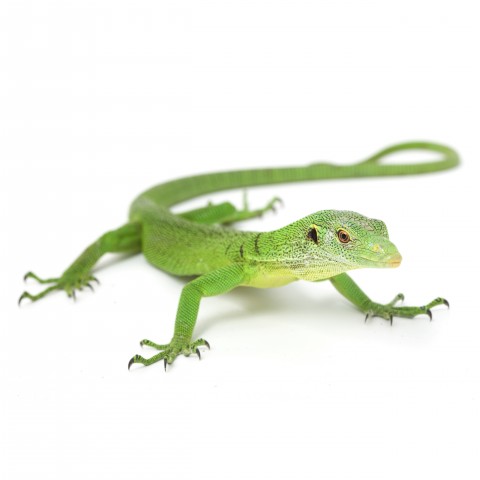
56. צפרדע
tzfarde’a
“frog”
57. לטאה
leta’ah
“lizard”
58. שממית
smamit
“gecko”
59. צב יבשה
tzav yabashah
“tortoise”
60. סלמנדרה
salamandrah
“salamander”
7. Animal Body Parts (חלקי גוף של בעלי חיים, khelkey guf shel ba’aley khayim)

Now that we’ve covered the more common animal species to be found in Israel, let’s have a look at some words for describing animal anatomy. As in English and most other languages, Hebrew has unique words to refer to the body parts of fauna, distinct from those used to describe the human body. Here are the ones you are most likely to use:
61. כנף
kanaf
“wing”
* Note that the plural for this word uses the dual form suffix -יים, and is כנפיים (kenafayim).
62. זנב
zanav
“tail”
63. טופר
tofer
“claw”
64. קרן
keren
“horn”
* Note that the plural for this word uses the dual form suffix -יים, and is קרניים (karnayim).
65. נוצה
notzah
“feather”
66. פרסה
parsah
“hoof”
67. חוטם
khotem
“snout”
68. מקור
makor
“beak”
69. קשקש
kaskas
“scale”
70. צדף
tzedef
“shell”
Want more? See our word list Sounds That Animals Make!
8. Animal-Related Idioms & Slang
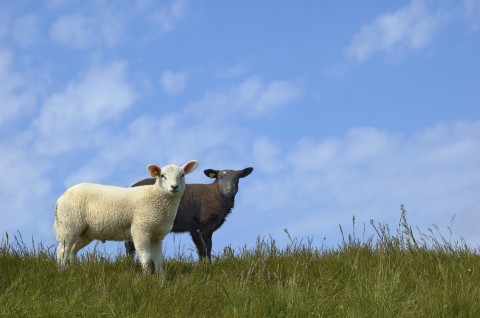
Last but not least, let’s see some idioms, slang words, and other expressions that use animal names in Hebrew. Like English, the Hebrew language has a slew of such words and phrases. This should come as no surprise, considering the Jewish people’s ancient roots in farming and husbandry. In fact, animal-related language is probably one of the most colorful categories of Hebrew. Let’s see some choice examples.
71. כבשה שחורה
kivsah sh’khorah
“black sheep”
- כולנו במשפחה למדנו באוניברסיטה חוץ מאחותי, הכבשה השחורה, אשר עובדת בבסטות בחו”ל כבר חמש שנים.
Kulanu ba-mishpakhah lamadnu ba-universitah khutz me-akhoti, ha-kivsah ha-sh’khorah, asher ‘ovedet be-bastot be-khul kvar khamesh shanim.
“All of us in the family studied at university except for my sister, the black sheep, who has been working in market stalls abroad for five years now.”
72. כמו דג במים
k’mo dag ba-mayim
“like a fish in water”
- כל פעם שאני חוזר לקיבוץ, אני מרגיש כמו דג במים.
Kol pa’am she-ani khozer la-kibbutz, ani margish k’mo dag ba-mayim.
“Every time I go back to the kibbutz, I feel just like a fish in water.”
73. להשתפן
lehishtafen
“to chicken out” (literally: “to act like a rabbit”)
- אל תשתפן! קפוץ כבר! המים עמוקים.
Al tishtafen! Kfotz kvar! Ha-mayim ‘amukim.
“Don’t chicken out! Jump already! The water is deep.”
74. דיר חזירים
dir khazirim
“pigsty”
- אמרתי לכם לנקות כבר את דיר החזירים הזה!
Amarti lakhem lenakot kvar et dir ha-khazirim ha-zeh!
“I told you to clean up this pigsty already!”
75. מבט ממעוף ציפור
mabat mi-me’of tzipor
“bird’s eye view”
- איזה נוף! יש לנו מבט ממעוף הציפור על כל העיר.
Eyzeh nof! Yeish lanu mabat mi-ma’of ha-tzipor al kol ha-’ir.
“What a view! We’ve got a bird’s eye view of the entire city.”
76. כמעוף הדבורה
ke-ma’of ha-devorah
“beeline”
- מתחיל כבר להחשיך. רוצי הביתה כמעוף הדבורה!
Matkhil kvar le-hakhshikh. Rutzi ha-baytah ke-ma’of ha-devorah!
“It’s getting dark already. Run and make a beeline for home!”
77. חזק כשור
khazak kmo shor
“strong as an ox”
- ראית את העובד החדש במחסן? הוא חזר כשור!
Ra’it et ha-’oved ha-khadash ba-makhsan? Hu khazak kmo shor!
“Have you seen the new employee in the warehouse? He’s strong as an ox!”
78. שעיר לעזאזל
sa’ir la-’Azazel
“scapegoat”
- אל תנסו לעשות ממני שעיר לעזאזל. מה שקרה זה לא באשמתי.
Al tenasu la’asot mimeni sa’ir la-’Azazel. Mah she-karah zeh lo be-ashmati.
“Don’t try to make a scapegoat out of me. What happened isn’t my fault.”
79. נחש בעשב
nakhash ba-‘esev
“snake in the grass”
- אני לא סומך עליו בכלל. הוא סתם עוד נחש בעשב.
Ani lo somekh ‘alav bikhlal. Hu stam ‘od nakhash ba-’esev.
“I don’t trust him at all. He’s just another snake in the grass.”
80. החלק הארי
ha-khelek ha-ari
“the lion’s share”
- בואו נודה בכך שדפנה עשתה את החלק הארי של העבודה.
Bo’u nodeh be-khakh she-Dafnah ‘astah et ha-khelek ha-ari shel ha-’avodah.
“Let’s just admit that Dafna did the lion’s share of the work.”
9. No need to go lone wolf with your Hebrew! Let HebrewPod101 get you to the head of the pack.
We hope you enjoyed today’s lesson on animals in the Hebrew language. We here at HebrewPod101 know that sometimes studying a new language can make you feel like you’re a fish out of water, but that’s why we’re here: to make sure you’ve got a school to swim with. Our lessons are carefully crafted to cover all the topics you’ll need to master on your language learning journey while having a whale of a time.
So don’t sweat it! Just remember that mastering a language, like any large and long-term project, is best done a bit at a time. Whether it’s vocabulary, grammar, or pronunciation, we always encourage our students not to bite off more than they can chew in one sitting. Just pick a reasonable amount of language and, once you’ve gone through it, make sure to review everything!
Have fun checking out our thousands of other written and audiovisual lessons, where we cover a broad range of topics and situations, from ordering at a restaurant to the top Hebrew-language music artists and TV shows.
Before you go: What’s your favorite animal? Do you remember its name in Hebrew?










